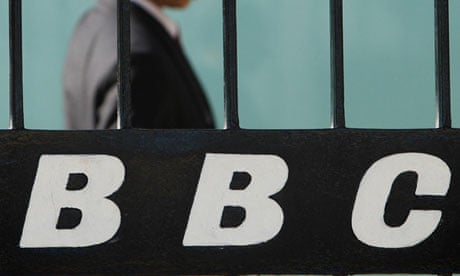Commissioned in the wake of the Savile scandal, the BBC's report into sexual harassment and bullying is a damning criticism of a culture in which staff were left terrified of some senior managers and on-screen stars, where "known bullies" were allowed to prosper and even be promoted because they were perceived to be untouchable.
Dinah Rose QC, the author of the review, said there was a "strong undercurrent" of fear at the corporation, in which 35 members of staff were involved in 37 cases of alleged sexual harassment at the BBC over the past six years, and where others verbally abused junior staff or made sexist remarks to young female workers.
To underline the point, by coincidence, the six month inquiry, entitled Respect at Work, came out on the same day it emerged that veteran BBC presenter Stuart Hall had pleaded guilty to 14 counts of indecent assault against girls, including one victim as young as nine.
Rose's review did not name any individuals, but she did highlight "examples of presenters being managed out of the organisation or removed from a programme". However, usually this was perceived "as only being dealt with 'too late' – such as when their 'programme' or their profile was no longer considered valuable, or when the person's reputation was already tarnished."
The report concluded that on-screen talent should be made to understand that BBC policies apply to them as much as any other employee – more so, as they are the public face of the corporation – although there were no examples of well known names committing abuse. Nevertheless, whether famous or not, the Rose review warned that the BBC often considered that some individuals were thought to be "'untouchable' due to their perceived value to the BBC."
It also pointed to a problem with "talent" – presenters and star names – with a perception among the BBC's 22,000 staff that they were "treated differently and don't have to adhere to the same rules because they wield power over the organisation and anyone who tries to manage them".
Tony Hall, the new director general, acknowledging that the Rose review made for "uncomfortable reading", also revealed a change in policy in which the BBC would ditch so-called "gagging clauses" in staff contracts to make it easier for disgruntled employees to speak out.
Miriam O'Reilly, who won a landmark age discrimination case against the BBC after she was dropped by BBC1's Countryfile, and has spoken out about bullying, said: "I am delighted they are going to remove the contractual gagging orders because they have been the main reason why BBC management has been able to say they have had a good track record on bullying in the past.
"I hope they are going to be strong on the bullies because they are still there. This is a good test for Tony Hall to see whether he has the mettle to sort the BBC out. Bullies were allowed to thrive in this organisation, they were almost untouchable and they were able to make people's lives an absolute misery."
A total of 35 people were involved in 37 cases of alleged sexual harassment at the BBC over the past six years, according to the Rose review. Two individuals were dismissed, while a third received a written warning. More than two-thirds of the cases resulted in the perpetrator receiving a final warning or their contract terminated.
In a "very small" number of examples, the alleged offender had gone on to be promoted despite having a sexual harassment complaint upheld against them – while in "only a few cases" the alleged perpetrator had been suspended or redeployed to another part of the BBC after the complaint.
Victims of alleged sexual harassment tended to be young and in the early stages of their career, the report concluded, mostly female but occasionally also gay men. The perpetrators were in "positions of influence who clearly feel confident they can act freely".
Instances of inappropriate behaviour included people who sent "overtly sexist texts" to private mobile numbers, and "overtly sexist comments against females in some teams … resulting in a difficult and tense working environment". Respondents reported situations where male employees would "seek out, flatter and support younger female freelancers and contractors above their male counterparts". This behaviour was "not pervasive or endemic", the report said, but was "visible, frequent and consistent enough to be a very real concern".
The report said concerns about bullying and "other forms of inappropriate behaviour" were "much more prominent". "Often this behaviour appears to go unchallenged by senior managers," it said. "Some individuals are seen as being 'untouchable' due to their perceived value to the BBC."
But broadcasting unions criticised into the corporation, attacking the "toxic" problem of bullying and harassment at the BBC. "It is quite clear that bullying has become an institutionalised problem at the BBC, one that has taken hold over many years," said Michelle Stanistreet, the general secretary of the National Union of Journalists.
"Our submission [to the BBC inquiry] was eye watering stuff – people have been bullied because of their sexuality, or their race; women have been subjected to the most awful sexism; journalists have been openly attacked about their age and there are many others whose lives have been made unbearable for no discernible reason, people have been picked off simply because their face doesn't seem to fit."
The NUJ submitted more than 70 pieces of testimony to the Rose review, including multiple accusations of bullying against a single senior executive who was named in a collective complaint by more than 20 people.
Gerry Morrissey, general secretary of the BBC's biggest union, Bectu, said bullying affected "several hundred" people at the broadcaster with complaints made daily to his representatives. "It is not physical intimidation, it is people who lose their temper, are shouting, the impact on people can be demeaning and humiliating," he said.




